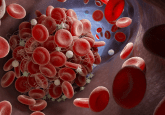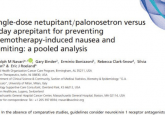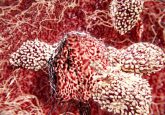Real-world symptoms, disease burden, resource use and quality of life in US patients with advanced renal cell cancer

Recently published in Future Oncology, researchers have described the characteristics of a real-world cohort of patients being treated for advanced renal cell cancer (aRCC). The authors assessed patients’ symptoms, healthcare resource utilization (HCRU), and health-related quality of life (HRQoL) in clinical practice. They also investigated outcomes according to the aRCC treatment the patient was receiving at the time of data collection and outcomes according to IMDC risk score. The results of this study found a high disease burden in patients with aRCC, particularly in those with intermediate or poor IMDC risk scores, in whom HCRU was greater and HRQoL was worse compared with patients with more favorable risk scores. The authors concluded that these findings indicate a need for improved disease management in these patients.
Abstract
Aim: To assess symptoms, HCRU, and HRQoL in aRCC clinical practice. Patients & methods: US point-in-time survey of physician and patients conducted February–September 2019. Results: Data were available for 227 patients. Mean (SD) number of symptoms was 3.4 (3.2); differences were observed across International Metastatic RCC Database Consortium (IMDC) risk categories (p<0.001), with fewer symptoms in favorable-risk patients. Disease burden, measured by greater HCRU and worse HRQoL, was high, particularly in IMDC intermediate- or poor-risk versus favorable-risk patients. In total, 45 patients (21.6%) were hospitalized due to aRCC within a 6-month period, 35 (16.8%) had one hospitalization, and 10 (4.8%) experienced ≥2 hospitalizations due to aRCC. Mean (SD) FKSI-19 score was 53.6 (13.2) for this population, significantly lower than the reference value (59.8; p<0.001). Conclusions: A clear need exists for improved disease management in patients with aRCC.
Lay Abstract
Advanced RCC (aRCC) is kidney cancer that has spread to other body parts. aRCC is expensive to treat and affects patients in many ways. New treatments have become available, including tyrosine kinase inhibitors and immuno-oncology therapies. The type of treatment recommended depends on the patient’s IMDC risk score. This is a way of classifying patients as having a good, intermediate or poor survival risk. We asked physicians questions about their patients, such as their age, how long they had aRCC, their treatment and symptoms and asked patients how aRCC affected their lives, including how often they visited doctors and hospitals. aRCC had the greatest effect on patients with poor risk scores. Those patients had more symptoms and worse quality of life than patients with intermediate or good risk scores. Treatment also affected patients’ lives, although not as much as risk score. Patients with aRCC need better treatment options to help improve their quality of life.
Read the full paper:
Register to Oncology Central now for the latest journal content





